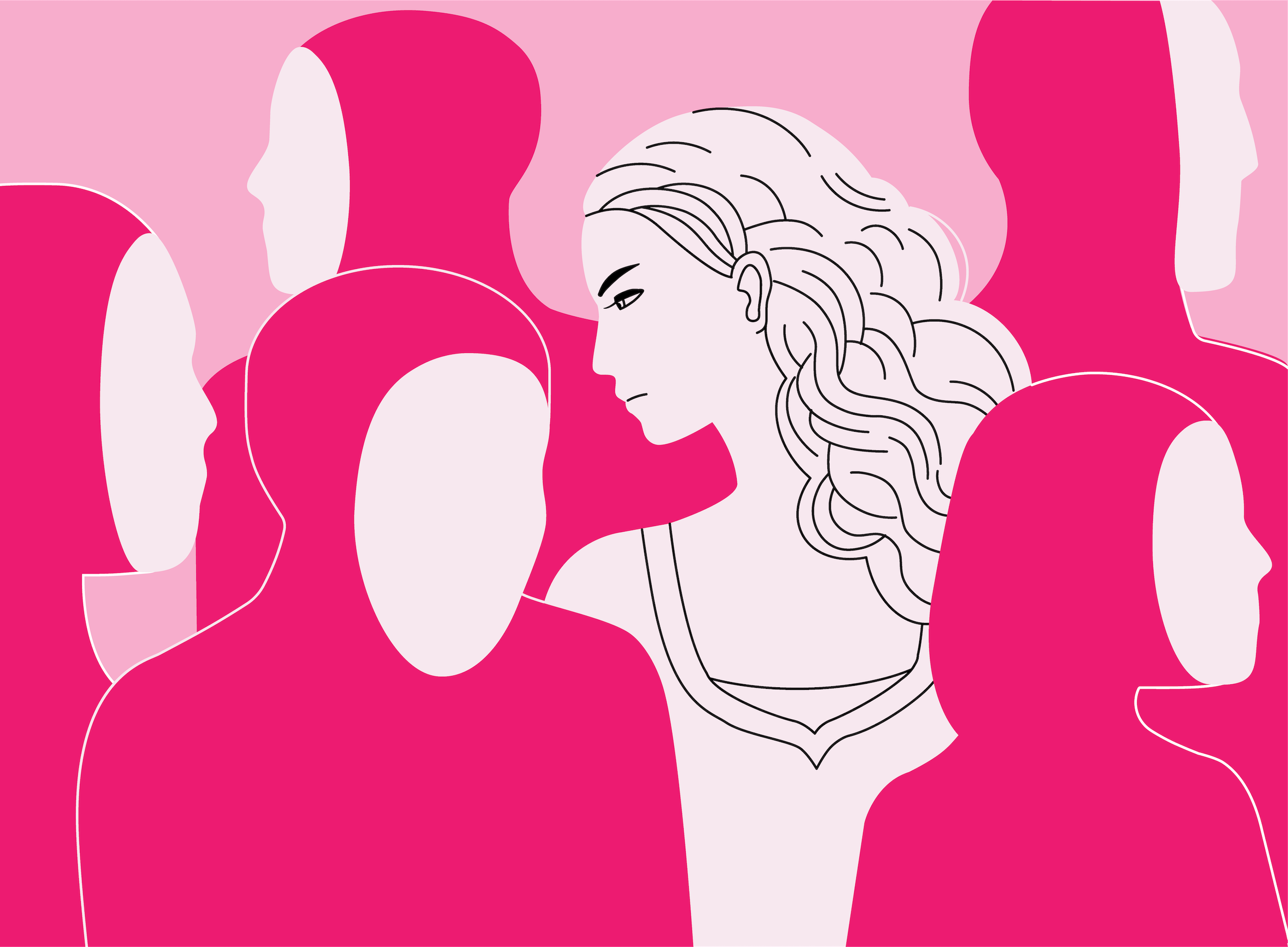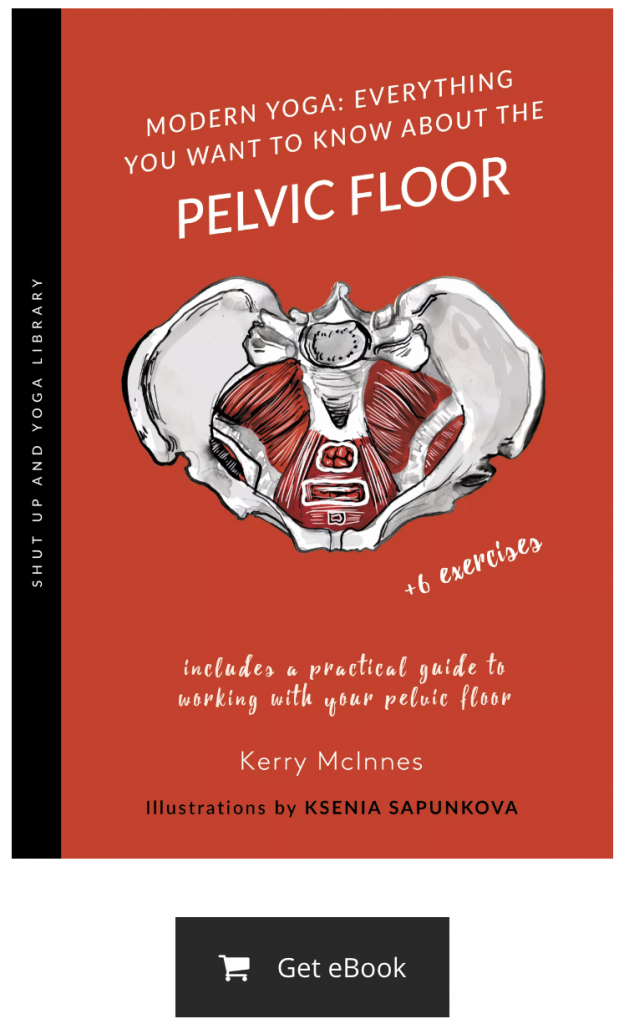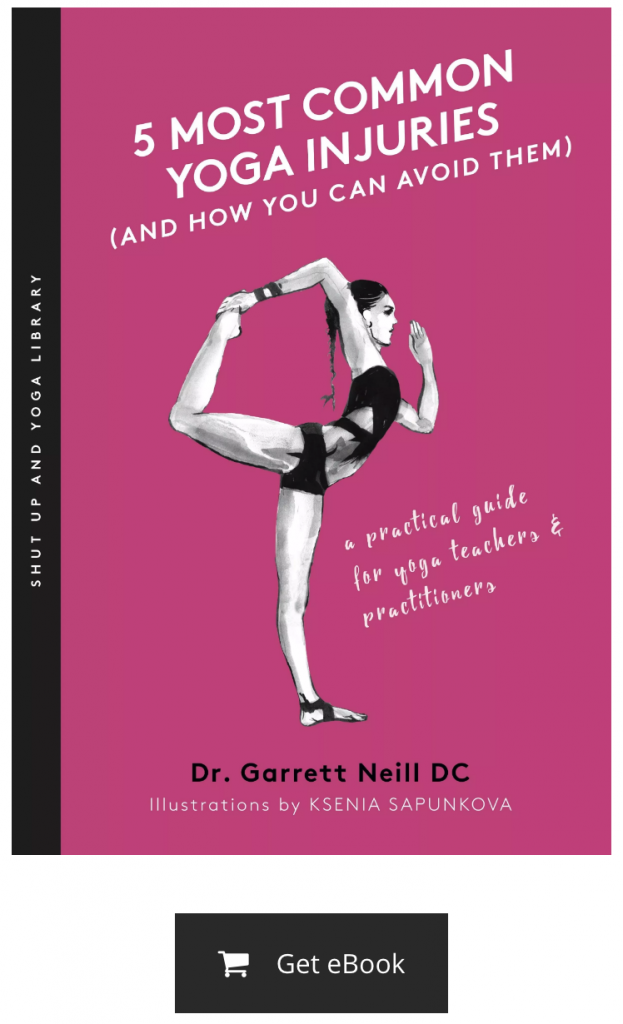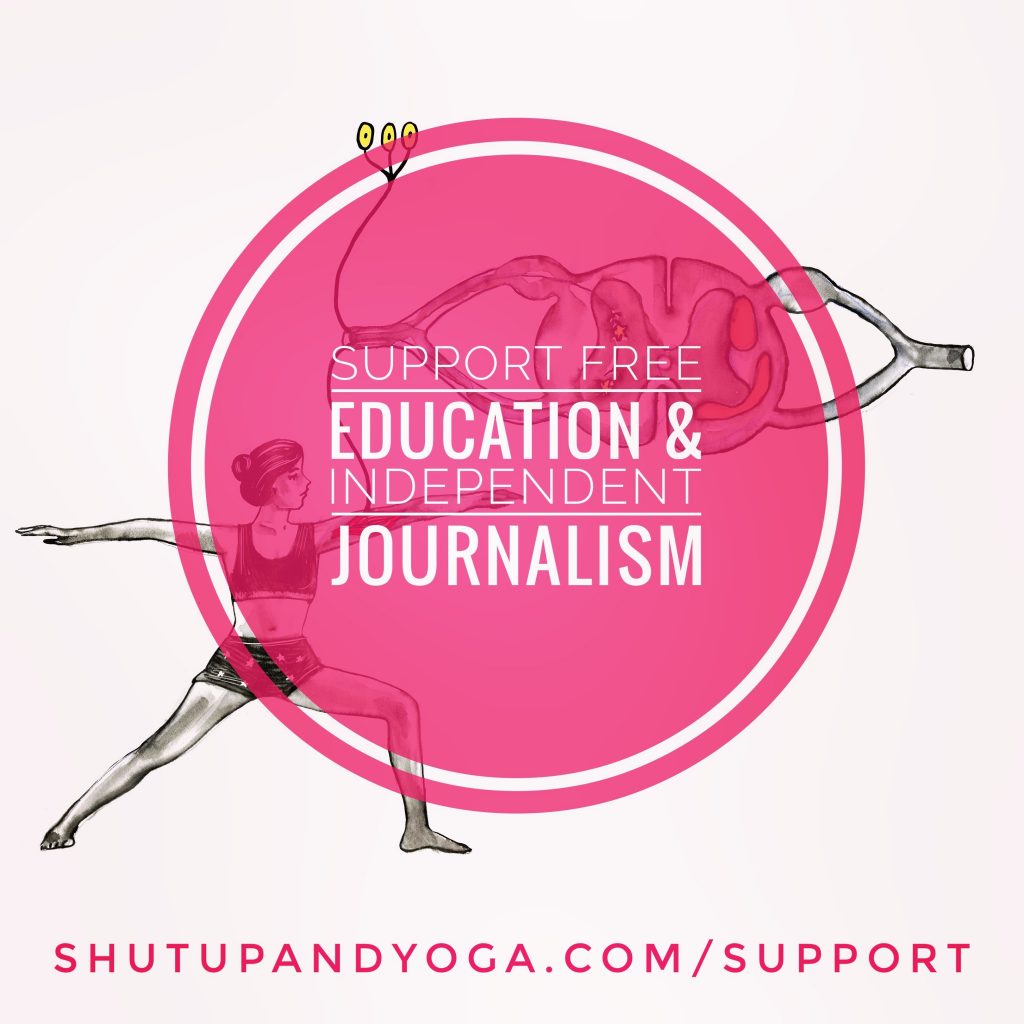A friend of mine once said to me, “To compare ourselves negatively to others is violence against ourselves.” Her words stuck with me.
Picture this: You wake in the morning, full of optimism and ease. You think of the projects you are developing and the ideas you are excited to bring to life today. Idly, you pick up your phone and with one quick check of your Instagram feed, your mood begins to take a sharp change in direction. As you scroll downward, so does your mood.
The ease you felt just minutes ago becomes a sick feeling of tension, dread, and shame. Thoughts spring to life in your head like, “My body needs work,” “My ideas suck,” “I’m so embarrassed about sharing my creations.” The whole flavour of the day ahead changes. You might find yourself ruminating and dwelling, blaming and chastising yourself, caught up in jealousy, or even paralysed by shame.
How did this happen? This is how: You found yourself in the comparison trap where you took the strengths of others and compared them to your own perceived flaws, and it took a whole five minutes for your mood to do a complete 180 degree turn from enjoying and celebrating yourself to believing that nothing about you is up to scratch.
In these days of physical isolation and the constant call to make adjustments within rapidly moving landscapes, the comparison trap can ensnare us quicker than it takes to say “social media.”
I am hearing a collective litany of self-questioning and self-doubt within my community of yoga and meditation teachers as they witness the scramble to build online teaching platforms.
“I wake up and my thoughts flash to all the things I could be doing, need to be doing, or feel I should be doing, but in my stressed state I don’t have the energy,” says my friend Greta, a yoga teacher. “And then I go online. That paralyses me. All I see is competition. All I see is people making better contributions than I ever could. As much as I feel an anxiety to act, I also feel completely paralysed.”
Now is not the time to be comparing ourselves to others. While on some level we might be in more collective alignment than ever before, the underlying message of the #stayhome hashtag is that we are all doing isolation differently.

Not everyone shares the same demands. While some find themselves with a sudden opening in their schedules, others are locked down with families of dependents who need constant attention. Then of course, there are those who are busier than ever—working at the frontline in healthcare or other essential service, with a dire need for self-care.
For those of us who are able to offer services virtually, the need for self-care can be undermined by taking on extra responsibilities. For instance, we may need to rethink how we implement self-care practices rather than directing even more energy into additional services like streaming a yoga class.
“Seeing people post their meditation classes online and knowing that I have useful work in that area to share myself, I considered using this time to build an online presence with my business,” says another friend, Tabatha, a yoga and meditation teacher. “But I’m home-schooling two children, my husband and I are building a house, and I’m doing essential work at a rehab centre. I don’t have the space, I don’t have the energy. I had to take a conscious moment to step away from what I was seeing on the internet and tune into what was really needed right now. What I felt was that this is a time to be gentle with myself and gentle with the people around me.”
The way Tabatha took time to be conscious of her thought-patterns and make peace with them so that she could continue to live in wise and healthy ways gives us all an important note.
Grace, who teaches yoga in the UK, says: “I hope this time of Covid-19 will see the end of “yogalebrity.” For too long, certain “rockstar” yoga teachers have dominated digital platforms. Now, yoga teachers who previously would have stayed in the shadows are developing their own online presence and I think this is a good thing. They are sharing their light instead of hiding it, thinking it’s not good enough because they don’t fulfill the criteria for being a “yoga rockstar.”
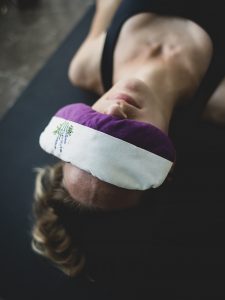
If comparing ourselves to others brings about feelings of pressure or shame in such a way that it threatens our well-being, how then are we going to be able to support those around us—our families, friends, and students—who are vulnerable? There is more to making a contribution than posting things online. As valuable as that can be, it is sustainable only if it comes from a compassionate place—and that includes being mindful about our own mental state, physical well-being, and emotions.
A Recognised Threat to Mental Health
“Comparison is the thief of joy,” goes the old adage, coined by President Theodore Roosevelt. Cognitive behaviour therapy (CBT) has a phrase for this pervasive kind of thinking called, “compare and despair thinking,” and recognises it as a major contribution to anxiety, depression, shame, and lack of self-worth. It is a mental health problem that has increased since the beginning of the digital age.
There have been numerous studies on the link between screen time and depression and anxiety in teens which points to challenges related to upward social comparison.
Beginning in January 2020, in recognition that “social one-upmanship” is negatively affecting peoples’ well-being, Facebook and Instagram took a U-turn on their strategy around popularity metrics by hiding the number of “Likes” for users in several countries. Instagram’s CEO Adam Mosseri shared that, “The idea is to depressurize” the photo-sharing app and make it a space that is more focused on connections and community, especially for young people.
If those of us who are feeling relatively stable and good about ourselves can find our emotional security rattled by the act of comparing ourselves, imagine what damage it can bring to the welfare of someone who is seriously struggling with their mental health.
In 1994, I was diagnosed with multiple sclerosis (MS). In many ways, MS taught me more about the importance of steering a course away from the comparison trap than anything else could have. For a while, my whole story seemed to contain a narrative of “failing to compare with.” My physical body did not compare to the physical body I had as a child, nor the one I had expected to have as an adult. The same narrative applied to my energy levels, my motivation, and my mind. Against an outdated list of values for “being me” based on the way I had been or had hoped to be and to live, I was failing. When I looked outside of myself at others, my attention was inevitably drawn to noticing how much “more” of themselves they were able to offer than me: more energy, more productivity, more personality, more value.
A great support to me was psychotherapy which taught me how to move beyond this “compare and despair” narrative and to be more compassionate and encouraging toward myself. As I recovered and strengthened my own sense of intrinsic value, my mind-body seemed to catch up and my health improved dramatically. I still take no medication for my MS and have learned to live a healthy life with it. We thrive when we receive ourselves as the individuals we really are and live in a relationship with that person, rather than in comparison to other people who have their own journeys.

Comparison is the Thief of Joy—So Why Do We Do It?
Where does this compelling need to compare ourselves come from, anyway? What forces might be at play when it becomes a ruling state of awareness? And perhaps most importantly—in the interests of our emotional security, mental health, and delightful human capacity to be completely and unapologetically ourselves—how might we overcome it?
What does it matter what other people do? In the end, it only matters what we do. We were created as individuals, not clones. Nature itself shows Creation’s love of diversity. No two cows are exactly alike. No flower, no tree, no blade of grass is the same as the one next to it. Presumably, there is no striving in an oak tree to be more like an elm, no rumination in the buttercup about not being as yellow as some of the others in the meadow.
“To each their own” is a comforting and solid thought, and yet we still look to others and compare.
Our uniqueness is a gift. It is arguably the most important and miraculous thing about us. The DNA which came together to form you will never come together again in exactly the same way. In the words of Nat King Cole, “There will never ever be another you.” What kind of a world would it be if we were all exactly alike, walking the same paths, looking exactly alike, doing the same things in the same way? In the words of another song, “What if everybody looked the same?”
As easy as it is to utter the words, “Don’t compare yourself with others, each has their own path,” the override button in this thinking is strong. There is a clue here: Any impulse in us that is strong and associated with feelings of fear and lack and insecurity usually has a primal-survival root.
We Are Wired To Compare
Social comparison is a hard-wired human tendency, making it a hard habit to leave behind. Whether we are aware of it or not, it’s a big part of how we determine our own happiness.
CBT therapist Ali Binns explains it this way: “In the evolutionary context of survival, having a cognitive ability to compare our abilities with others’, or to suss out whether or not we might be acceptable to another social group, makes a lot of sense, especially if the results of our decision are bound up with live-or-die scenarios. However, in the present day, this hangover from the past can tip from helpful for survival to unhelpful for daily life.”
It is crucial to understand the origin of some of our collective impulses. We are drawn to doing things because they once helped us to survive. We don’t have “bad brains” or “stuck brains,” we neuroplastic humans just need to be conscious of how we are using our brains—whether our thoughts and feelings are responding to a useful, current message from the present moment or to an impulse from the past.
Our Culture Supports the Comparison Trap
Not only do we have a brain predisposed to keeping up with the Joneses, apps draw us in to check on what the Joneses are doing and advertisers push us into despair over not having what the Joneses have, which can trigger a comparison mindset. But there are dangerous cultural cues, too. Our competitive culture frequently sends the message that we need to be special and stand out, even encouraging us to knock down those who stand in our way.
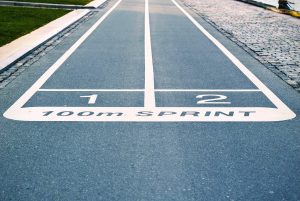
So How Do We Avoid The Trap?
It might be comforting to know that most of us, if not all, compare ourselves to others unfavourably from time to time and that the “comparison button” in our consciousness is a built-in prehistoric survival mechanism, not a character flaw.
When we are struggling with insecurity, we might be more vulnerable to feelings that activate this outdated survival mechanism.
In her TED Talk, “The Art of Being Yourself,” Caroline McHugh coins the term interiority. She talks about “being good at being yourself.”
Interiority, she says, “is uncomparable.”
“For a superiority complex,” she says, “you need others around you who you can make small. For an inferiority complex, you have to compare yourself with others to make you become smaller. You may suffer from, ‘I’m going to be found out’ syndrome, so someone needs to find you out…The only place you can be yourself with no one to reference it is interiority. It’s the only place in life you have no competition.”
We’re not talking about a sloppy human habit here, but rather about something that arises when we are low in interiority. Pervasive social values have pushed us to “be the best version of ourselves.” All the while, we’re surrounded by a marketing culture that feeds off our insecurities and creates feelings of lack (“look at this thing that you don’t have, look at the people who do have it, and look how much prettier/happier/worthy they are than you”).
The first thing we can do is to become more sensitive when we are in danger of wandering toward the comparison trap rather than mindlessly falling into it.
The next thing we can do is take a deep breath and a step back and ask ourselves what we might do to strengthen our sense of self and turn a corner where we can be both productive and peaceful without the pressure of wondering how everyone else is taking care of their business.
One of my friends is currently trying to home-school three children as a single parent while continuing to do her corporate job from home. She shared with me her personal experience:
“I have a friend who is pretty much in the same position as me, yet somehow all she ever posts on Facebook are pictures of her kids settling down to study in nicely-organised spaces, the amazing-looking meals she is making, and herself looking gorgeous. One night after a few glasses of medicinal wine, I started writing a long ranting email to her, accusing her of deliberately trying to make other people feel bad. Luckily, I didn’t send it because when I looked at it again in the morning, I realised what my reaction told me was that I am tired and stressed. I was trying to convince myself that I should be coping better with all these new demands and craziness. I realised I needed to give myself a break. That wasn’t my friend’s responsibility—it was mine.”
Here is a top reminder to keep in your back pocket for staying strong and serving as your own glorious, unique self.
TOP TIP: A Reminder from Martha Graham
Remember, when we compare ourselves to others, we are really just judging ourselves. We can bury resentments toward ourselves, sometimes for years, and not realise it until we find ourselves unable to be happy for another person’s success.
Have you ever shared a personal achievement with a relative or friend and received a far from enthusiastic response? In that moment, rather than being able to share in your happiness and pride, this person found themselves triggered to judge themselves against you and could only feel their own value somehow diminished by your achievement.
It is knowing how it feels to be the one “being compared to” that has strengthened my resolve to separate my self-worth from others’ achievements. Since childhood, I wanted to be a writer. When I was 12 years old, I began to write a novel. I have a vivid memory of sharing my joy at this newfound creativity with an older friend and declaring happily that when my book was finished, I hoped to find a publisher. Her response was both cold and dismissive. “I wanted to write books when I was a child too,” she said, “but it was just a silly dream. Everyone thinks they can publish a novel but very few people can.”

I remember thinking I had been asked to swallow something that hurt my throat. When, at the age of 24, I published a novel with Penguin, I could not wait to share the news with that same friend in a phone call. “I’ve just come out of a meeting with an editor at Penguin,” I said, “They are going to publish my book!” There was silence on the line, then an almost throw-away “Congratulations” before she changed the subject altogether.
Though it was hurtful at the time, these episodes taught me an important lesson. It was not that this person wasn’t proud of me or pleased for me—later, she recommended my book to anyone and everyone she could think of—it was that in that moment a wound she had been carrying was triggered. Her disappointment in herself and self-reproach for not having achieved the very thing I had achieved overwhelmed her capacity to share my joy. I could see how an attitude of comparing oneself to others could turn someone into a bitter and resentful person, and I didn’t want to be that person. I made a pact with myself that I would always try to separate my own self-esteem issues from my ability to support and congratulate those who are important to me.
In any moment of self-comparison, it isn’t anyone else who is judging you, it is you. It isn’t the world going about its own business making you feel awful, it is the way you are putting down your own worthiness. Rather than beat yourself up for not being someone else, celebrate your uniqueness.
How would you like to be seen? How would you like to feel? Are you a good judge of yourself? We are often the worst judges of our own work. If you don’t like the way your self-judgment makes you feel, be a more fair and generous judge.
In her famous words to dancer and choreographer Agnes de Mille, Martha Graham—the most influential dance choreographer of the twentieth century—says:
“There is a vitality, a life force, an energy, a quickening that is translated through you into action, and because there is only one of you in all of time, this expression is unique. And if you block it, it will never exist through any other medium and it will be lost. The world will not have it. It is not your business to determine how good it is nor how valuable nor how it compares with other expressions. It is your business to keep it yours clearly and directly, to keep the channel open.”
More Tips for Breaking Out of the Comparison Trap
- From the moment you wake up onward, have check-ins with yourself throughout the day. Go inward and take an honest and self-compassionate read on how you’re feeling. If you already feel bad about yourself, that is the filter through which you will see life around you. Thus, when making comparisons, you will always come off worse, which will make you feel even worse. Take time to nurture your feelings. Like my friend Tabatha, make a conscious decision to be gentle with yourself.
- How do you feel as you scroll through Instagram? What emotions come to the surface when you see other peoples’ newsfeeds? If your feelings toward yourself are not kind, consider switching off your phone and doing something more rewarding for yourself. This may sound extreme, but you should be the judge of whether your social media feed improves your mental health and self-esteem or not.
- We are meant to be different, which is why we are unique. The DNA that created you will never come together in exactly the same way to create another living being. When we are comparing ourselves to others, we are not comparing like with like. Doing what is right for your being and body makes much more sense than doing what would be right for others in theirs.
- What would you say to a dear friend who was comparing themselves negatively to you? Offer the same truth-check to yourself.
- Comparison kills compassion. If you can’t help comparing and are finding it impossible to stop the habit right now, that’s okay. Instead, try “compassionate comparison.” That is, use the problem as an ally by taking a mindful moment and saying something lovely to yourself—offering yourself some praise and encouragement in a “I’m so happy to be myself” tone.
- In the same vein, ask yourself, “What are my comparison-judgments telling me?” If you are feeling overwhelmed by a pressure to do more, for instance, perhaps that overwhelm is signalling you not to give more than you have available. If we all do our droplet, the world will ripple with all that it needs.
- Every contribution matters right now. Unless you are looking to others for inspiration, look to your own gifts and work. Your job is to share what you have to offer from where you are right now. To quote Pema Chodron, the Buddhist teacher, your job is to “come as you are.” Serve from your heart rather than perceived expectation. Believe me, honest heart-felt giving is the best purveyor of work in the world.
- Remember that achievement and success are not limited or scarce. One person having it doesn’t mean you can’t. It is so important that we have our own particular offering at the moment—even if that is vinyasa class, it is our vinyasa class and it emanates from our own unique heart. We do not need to worry now about what our “calling” is or how it compares. We simply feel a call—to serve what we can with what we have. It is not a case of “there are so many people competing for space now,” but that there is a space waiting for us to come forward with our particular offering and a class of students waiting for us there.
- When we find ourselves jealous of someone, there is a beautiful Muslim tradition of saying a prayer for that person’s success to be increased. As my Muslim friend Aiza explains, ”The prayer asks us to keep away from being jealous of others who are blessed by Allah in ways different than our own. Make Dua (invocation, or prayer) to Allah for them and ask Him to give you the same if it’s good for you.”
- Ask yourself, “Who am I when I am alone?” I encourage you to watch Caroline Hugh’s excellent Ted Talk, “The Art of Being Yourself” on letting your individuality shine.
- We sometimes need a reminder that we only see the outside appearance of peoples’ lives. It is easy to compare our insides with other peoples’ outsides or an idea of them that we have developed that isn’t even true.
- Try breathing with this thought for a moment or two: We are all on different paths. No one can take away your own path, what you have, or who you are on a spiritual level.
- Build up the “empty places” inside you that heat-seek for validation from others or the internet. Fill them with gratitude; exalt the simple things.
- A friend of mine keeps a “sunshine folder” of happy thoughts she has had and kind words people have given her in emails, letters, and conversations. She reads it when she is feeling “not enough” and needs a reminder that her presence is valued and has an impact on others.
- Praise, congratulate, support, and uplift others. They deserve their happiness and success. The more you do this, the less you will feel resentment. There is a dopamine effect when we make others feel good.
- Ask yourself, “Whose angel was I today?” to connect you to the fact you have an impact.
- Remind yourself how peaceful you can feel when you don’t put yourself in a space of comparison. This is how my friend Alice reflects on Covid-19 lockdown: “This time has actually been a leveler for me. I used to resent the fact that I didn’t have the finances for international travel while other people were sharing all their travel photos on Facebook. Now I feel content with what I have and the life I have; I want to remember this lesson of being happy with what I’ve got. It’s so easy to forget.”
- When you find yourself being hard on yourself, nagging yourself that you are not doing enough, being enough, or that you are not worthy enough, remind yourself that every day you show up and do your best. How often do you reward yourself for that? Congratulate yourself? Rest on your laurels? You should! This meditation offers you the affirmation of, “I am proud of all my efforts.” Take it in deeply, beyond the layers of self-doubt, to your glowing spirit. Know that you have done well.
Final Thoughts
Once I allowed my health journey to show me the futility of comparing my energy body with anyone else’s, for a while I found myself in another kind of comparison trap: Comparing the version of myself I might meet on any given day with an “ideal, healthy version” of myself. Imaginary people have power over us too—especially ones that deem us “not quite there yet” and shame our efforts to do our best.

I noticed that comparing myself to others always pushes me out of my natural wisdom around self-care. I have a tendency to think I can do more in a day, a week, a year than I actually can. This partly comes from my passion and enthusiasm, partly from awareness of time and my mortality, and partly from seeing how productive some of my “heroes”—writers, philosophers—have been.
Over and over again, I have learned that this attitude leads to burnout. I don’t want to burn out, I want to have energy and thrive. It is far better, then, to work with the body and soul I have than any other version, real or imagined.
Above all, don’t beat yourself up for comparing yourself to others or even for judging yourself harshly. It is a feature of your humanity. However, do understand that you are not stuck with this habit or that once you make the comparison, you are in freefall toward despair: you are not. Perhaps instead you can be self-compassionate and grateful for what the habit brings up for you because that is the start of healing.
Being “you” is your real job in the world. In the wisdom of Dr. Seuss, “There is no one on Earth who is youer than you.”
The world needs you as you are.
Edited by Jordan Reed

